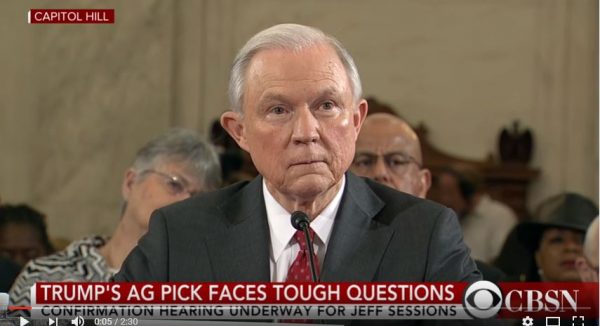By Dave Workman
Senior Editor
The Citizens Committee for the Right to Keep and Bear Arms has asked Attorney General Jeff Sessions to “withhold funds from any local or state government that adopts policies that infringe on the right of citizens to keep and bear arms.”
CCRKBA Chairman Alan Gottlieb made the request in a letter to the attorney general.
“The liberal municipal governments of such cities as New York, Chicago, San Francisco and Seattle, and states including New Jersey, Connecticut, California and Massachusetts should not be receiving taxpayer funds while violating the constitutional rights of those taxpayers,” Gottlieb said in a news release. “It is ironic that all of those places are willing to spend millions of dollars to attack the rights of gun owners, when they should be protecting civil and constitutional rights, including the Second Amendment.”
The proposal came on the heels of a move by the village council in Deerfield, IL, a Chicago suburb, to ban so-called “assault weapons” and original capacity magazines. The Second Amendment Foundation and Illinois State Rifle Association immediately sued to derail the ban.
It also coincided with a federal judge’s decision in Massachusetts to dismiss a challenge of that state’s ban on so-called “assault weapons.” U.S. District Judge William Young, according to The Hill, said that “the firearms and large magazines banned by the state in 1998 are “not within the scope of the personal right to ‘bear Arms’ under the Second Amendment.”
“More specifically,” Judge Young wrote, “Justice Scalia explained that ‘weapons that are most useful in military service – M-16 rifles and the like – are not protected under the Second Amendment and ‘may be banned.’”
But that’s not exactly what Justice Scalia wrote. Here is the exact passage from Pages 55-56 of the original Heller ruling:
“It may be objected that if weapons that are most useful in military service—M-16 rifles and the like—may be banned, then the Second Amendment right is completely detached from the prefatory clause. But as we have said, the conception of the militia at the time of the Second Amendment’s ratification was the body of all citizens capable of military service, who would bring the sorts of lawful weapons that they possessed at home to militia duty. It may well be true today that a militia, to be as effective as militias in the 18th century, would require sophisticated arms that are highly unusual in society at large. Indeed, it may be true that no amount of small arms could be useful against modern-day bombers and tanks. But the fact that modern developments have limited the degree of fit between the prefatory clause and the protected right cannot change our interpretation of the right.”
In his letter to the attorney general, Gottlieb contended that, “The anti-Second Amendment municipal governments of such cities as New York, Chicago, San Francisco and Seattle, and legislatures in states including New Jersey, Connecticut, California and Massachusetts should not be receiving taxpayer funds while violating the constitutional rights of the citizens in their jurisdictions.”
Gottlieb said “stubborn, anti-gun local governments” act out of spite to “hurt their citizens any way they can.”
“The time has come to slap them down,” he said, “and the best way to get their attention is to turn off the funding spigot.”




